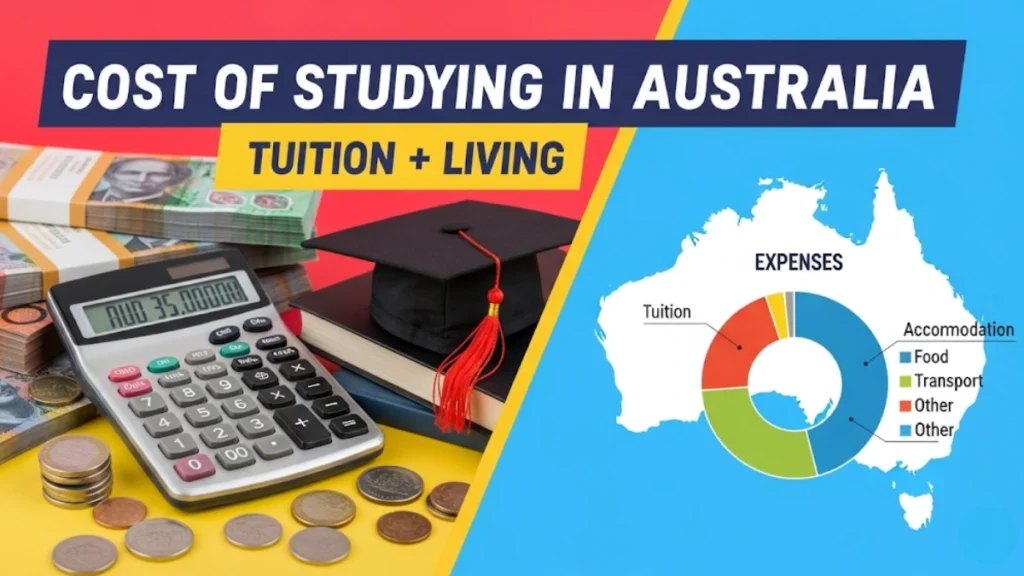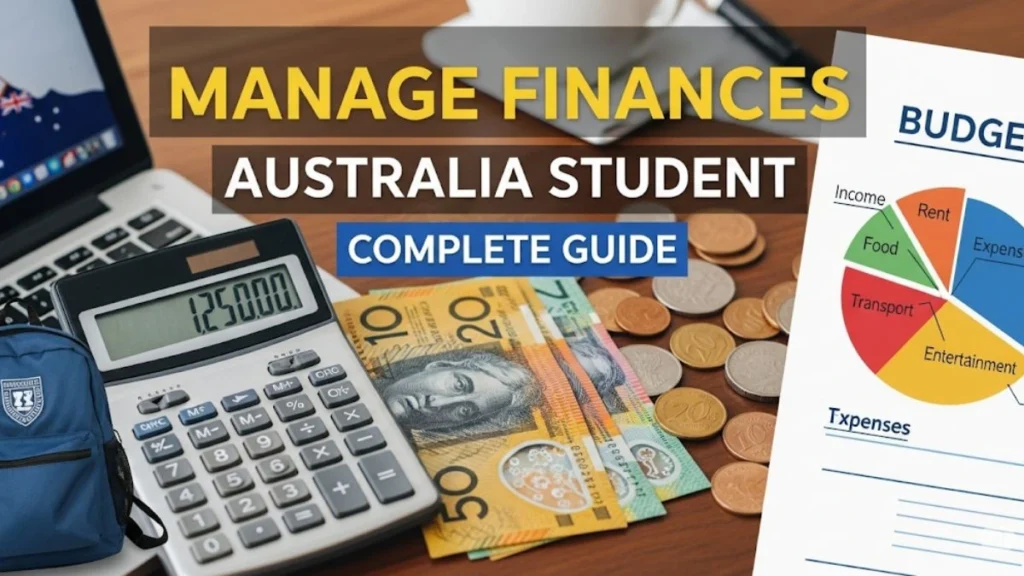Australia remains one of the top destinations for international students offering world-class education cultural diversity and beautiful landscapes. But before planning your academic journey it’s important to understand the complete cost of studying in Australia in 2025—including both tuition fees and living expenses.
This detailed guide will help you figure out your expected costs and how to budget smartly so you can focus more on your studies and less on financial surprises.
Why Study in Australia in 2025?
Studying in Australia gives you access to top-ranked universities a diverse student population and strong post-study work opportunities. Many universities offer globally recognized degrees and research facilities in areas like IT medicine engineering and business.
But like any international education experience cost is a major factor. Let’s break it down.
Average Tuition Fees in Australia (2025)
Tuition fees vary depending on the university course and level of study. Below is an estimate of average annual tuition fees for different programs:
| Level of Study | Estimated Annual Fee (AUD) |
| Undergraduate (Bachelor) | 20 000 – 45 000 |
| Postgraduate (Master’s) | 22 000 – 50 000 |
| PhD Programs | 18 000 – 42 000 |
| Vocational Education (TAFE/Diploma) | 4 000 – 22 000 |
| English Language Courses | 350 – 500 per week |
Note: Medical and veterinary science programs may cost significantly more—up to AUD 75 000 per year.
Top 5 Most Affordable Australian Universities
- University of Sunshine Coast – From AUD 24 000/year
- Charles Darwin University – From AUD 22 000/year
- Federation University Australia – From AUD 21 000/year
- Southern Cross University – From AUD 25 000/year
- University of New England – From AUD 20 000/year
These universities offer quality education at competitive tuition fees and are great for students looking to save on costs.
Read More: How to Manage Finances in Australia as a Student 2025 Guide
Living Costs in Australia for International Students
Your daily life expenses will depend on your city lifestyle and accommodation type. Here’s a breakdown of typical monthly living expenses:
1. Accommodation
| Type | Monthly Cost (AUD) |
| On-campus | 600 – 1 200 |
| Shared rental | 500 – 1 000 |
| Homestay | 900 – 1 300 |
| Private apartment | 1 200 – 2 000 |
2. Food and Groceries
Expect to spend AUD 300 – 600/month on groceries and dining out. Cooking at home is generally more budget-friendly.
3. Transportation
Using public transport is common and affordable:
- Monthly pass: AUD 100 – 150
- Many cities offer discounts to students
4. Utilities and Internet
- Electricity water gas: AUD 100 – 200/month
- Internet: AUD 50 – 80/month
5. Health Insurance (OSHC)
All international students must have Overseas Student Health Cover (OSHC):
- Estimated cost: AUD 500 – 600/year
6. Miscellaneous
Clothing entertainment mobile phone and other personal items:
- Around AUD 150 – 300/month
Estimated Monthly Living Cost (Total)
| Category | Estimated Monthly Cost (AUD) |
| Accommodation | 600 – 1 200 |
| Food and groceries | 300 – 600 |
| Transport | 100 – 150 |
| Utilities & Internet | 150 – 280 |
| Miscellaneous | 150 – 300 |
| Total | 1 300 – 2 500 |
City-Wise Living Cost Comparison
| City | Average Monthly Cost (AUD) |
| Sydney | 2 000 – 2 800 |
| Melbourne | 1 800 – 2 500 |
| Brisbane | 1 600 – 2 300 |
| Adelaide | 1 400 – 2 000 |
| Perth | 1 500 – 2 100 |
| Hobart | 1 300 – 1 800 |
Tip: Choosing regional cities like Hobart or Adelaide can significantly lower your living costs while offering the same education standards.
Scholarships to Cover Tuition Costs
To ease the financial burden many students apply for scholarships. These scholarships may be fully funded or partially funded.
Popular Scholarships in Australia 2025:
- Australia Awards Scholarships
- University of Melbourne Graduate Scholarships
- ANU International Scholarships
- Flinders University RTP
- Deakin Vice-Chancellor’s International Scholarship
Many of these scholarships cover full tuition living allowance and airfare.
Part-Time Work Opportunities for Students
International students on a valid student visa can work:
- Up to 48 hours per fortnight during the semester
- Unlimited hours during semester breaks
Typical part-time jobs:
- Retail staff
- Barista
- Delivery rider
- Admin assistant
- Tutor
Wages generally range between AUD 20 – 30/hour.
Tips to Save Money While Studying in Australia
- Share accommodation to split rent and utility bills
- Buy groceries from discount stores like ALDI or Woolworths
- Use student discounts on travel software restaurants
- Apply for university-based jobs
- Use free university Wi-Fi instead of personal internet plans
Sample Yearly Budget for an International Student
| Expense Category | Estimated Yearly Cost (AUD) |
| Tuition Fees | 22 000 – 45 000 |
| Accommodation | 7 200 – 14 400 |
| Food & Groceries | 3 600 – 7 200 |
| Transport | 1 200 – 1 800 |
| Health Insurance | 500 – 600 |
| Miscellaneous | 1 800 – 3 000 |
| Total | 36 300 – 72 000 |
Is Studying in Australia Worth the Cost?
Despite being on the expensive side Australia offers excellent return on investment for students due to:
- Globally respected degrees
- Post-study work visas (485 Subclass)
- PR-friendly pathways
- Diverse job market
If you plan your finances carefully study smart and make use of scholarships and part-time jobs the cost becomes manageable and worthwhile.


